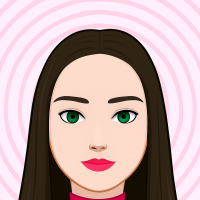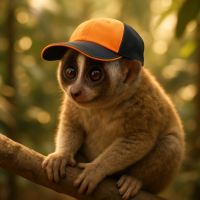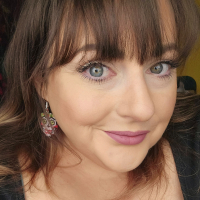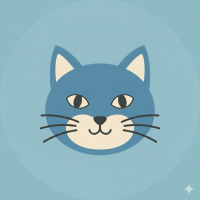How my disability became a secret weapon on the dating scene
From Women's Agenda by Lisa Cox
I’ve been happily married for over 11 years but back when I was dating with a disability, I unexpectedly found it to be a way to weed out the w*nkers.
Dating with a disability was a whole new experience for me after acquiring my visible and invisible disabilities in my early twenties. It was several years before I cautiously ventured out onto the dating scene in my wheelchair with horror stories that I’d read on the internet running through my head.
Given some comments from strangers, it was clear that now that I had disabilities, I was expected to lower my standards and ‘take whatever I could get’. In conversations I’ve since had with others in the disability community, I’m not alone in this observation. That was certainly something I wasn’t prepared to do.
While I never felt I needed a relationship for validation or to amplify my self-worth, I ached for that friendship that was unlike any other. Not just because we’d be lovers too but there were things that only that special someone would understand about me and only I would understand about them.
My friend Rose introduced me to online dating, and I Googled “How to write a dating profile when you have a disability.” The responses terrified and depressed me as I read about some of the cruel and nasty comments sent to people with disabilities.
People often think of a disability and something like a wheelchair as a hindrance when it comes to dating but in a strange way, I sometimes saw it as my secret weapon. Take for example the multiple encounters I would have with a certain type of cretin when I was out.
Let me set the scene for you. I’d make playful eye contact with someone from across the bar where I stood with my wheelchair and other disabilities completely hidden from view (I can stand up if I have something to hold onto). Thinking I was interested, they’d come sauntering around the bar, charisma dripping like an oily olive. I tried my best not to throw up as I lowered myself into my wheelchair.
Like clockwork, they would spot the wheelchair, and their attention would suddenly be diverted to an urgent phone call, an urge to visit the bathroom, or an invisible mate on the other side of the room.
Once again, my life, aside from being one big medical experiment, was also one big social experiment in how comfortable or uncomfortable society is with disability. I totally get that people have types, but when I thought about the men who had disappeared upon discovering I had a disability, I didn’t feel sorry for myself. Instead, I felt like I had dodged a bullet and felt sad for their future partners.
What if their future partner became unexpectedly ill, disabled or occupied a body that was a different size or shape? Taking a sharp left to check your phone or go to the bathroom wouldn’t be as easy then would it.
According to the World Health Organisation, we’ll all become permanently or temporarily disabled at some point in our lives. And given that almost one fifth of Australian’s already identify as having a disability, it’s something society needs to become a lot more comfortable with.
And it’s not just the dating world where people with disabilities face social bias. Unfortunately, the problem is systemic and leeches deep down into all sorts of social outcomes like education, healthcare, housing, and employment. Here’s just one example.
Let’s assume for a moment that those individuals from the bar were in fact recruiters, employers, government policy makers, or someone making decisions about the future of people with a disability.
Obviously, the situations – dating and employment – are very different, but what is constant is a poor social attitude about people with a disability – a lowered expectation, an assumed lower worth. If they couldn’t even be bothered speaking to a person with disabilities on a night out, then I doubt they’d be prepared to invest money and hire us.
People with disability are the world’s largest minority, according to the United Nations. In Australia, people with disabilities are employed at approximately half that of people without disabilities. There are many reasons people with disabilities don’t work and while employment may not be a goal for all of us, for many it is. One of the biggest barriers to employment is not the stairs at the front door, it’s the attitudinal barriers and bias from recruiters. Numerous global studies have also supported this unfortunate reality – disability discrimination in the workplace is happening at staggering rates
Comments
-
This is a really interesting article and something I think that isn't really spoken about enough for whatever reason that may be…whether its still seen as taboo or infantalisation of disabled people..
I do like this video by Hannah Witton as well, its so interesting and insightful into this sort of topic Disability, Sex, Relationships and Dating Roundtable | Hannah Witton3 -
Strange article. A wheelchair, a cane, etc. do not give any privileges when dating.
0 -
"Strange article. A wheelchair, a cane, etc. do not give any privileges when dating."
😂 she means she feels safe from time-wasters and kn*bs in general. She's having a laugh.
2 -
@Mary_Scope Yes, it was interesting and reminded me of a trailer I saw on Ch4 today about a new tv prog called, "Pushers". It shows a policewoman talking to a character (an actress/comedian Rosie someone), who I think is exaggerating her - "visible disability" as the cop calls it as they patronise her and speak to her like she is 5 yr old. Like the old - don't think it is on anymore - Radio 4 programme, "Does he take sugar?" which I thought was a brilliant title and encompasses the whole condescending and infantilising attitude some people have towards those with disabilities.
0 -
I've had that, in the past - people ignoring me and talking to my wife/carer and ignoring me - as if I was not capable of being involved in MY life !!
1 -
These are echoes of government propaganda of ancient times of programs on society about disabled people. New information of society is needed and in about 20 years the attitude may change a little for the better. Or it is necessary to fill propaganda with money as now with the situation in Ukraine - then the results will be faster.
0 -
Everything is simpler - there is no trace of the work of the mind in her texts, and who these texts are intended for is a big secret. The simple idea that any person passing by a disabled person does not owe anything to the disabled person is incomprehensible to her.
0 -
egister, I'm sorry you've lost me. I found the article funny. It's not meant to be serious.
0 -
Unfortunately, I have some experience of dating women with disabilities, and their behavior was very similar to the lady discussed above. Especially those who have had a disability since childhood.
It's sad.
0 -
0
-
@egister I'm confused by your comment. The article wasn't anything to do with feeling owed or entitled. The young woman was simply pointing out that, whilst disability is seen as a hindrance in dating, it can also act as a filter for undesirable traits. For example, people obsessed with the superficial, with what others think of them, or who are emotionally immature. That's certainly been my experience.
I'm sorry to hear you've been treated badly by partners previously, and I think that could be colouring your perception.
0 -
This really resonated with me. I love how she reframes disability as a filter that reveals people’s true character, rather than a flaw to overcome. The link she draws between dating bias and systemic discrimination is powerful and uncomfortable in exactly the way it needs to be.
1 -
2017 I was single. I was not physically disabled at the time. But I had a mental health issue which I still have. I was dating different people. I met this one person who seemed nice. But something wasn't quite right about him. After about eight dates. He told me about his wife. She had become disabled. In a wheelchair. And she had become incontinent. On the day he was talking about, while they were walking around a market in London. She was incontinent. And he called all the names under the Sun, forced her to get out of the wheelchair, and clean herself. That was the day I decided I would never see him again.
0 -
Sounds like you dodged a nasty person there @MissCoughDrop! What a horrible way to treat his wife.
0 -
'to lower my standards and ‘take whatever I could get'.'
This discussion reminds me of a new book that will be published in March A Wheelie Awkward Romance. I haven't read it yet, but I am curious about it.
Pssss: available here as an ARC right now.
0
Categories
- All Categories
- 15.8K Start here and say hello!
- 7.5K Coffee lounge
- 105 Games den
- 1.8K People power
- 159 Announcements and information
- 25.2K Talk about life
- 6.2K Everyday life
- 508 Current affairs
- 2.5K Families and carers
- 873 Education and skills
- 2K Work
- 579 Money and bills
- 3.7K Housing and independent living
- 1.1K Transport and travel
- 642 Relationships
- 1.6K Mental health and wellbeing
- 2.5K Talk about your impairment
- 878 Rare, invisible, & undiagnosed conditions
- 939 Neurological impairments and pain
- 2.2K Cerebral Palsy Network
- 1.2K Autism and neurodiversity
- 40.8K Talk about your benefits
- 6.1K Employment & Support Allowance (ESA)
- 20.3K PIP, DLA, ADP & AA
- 9.1K Universal Credit (UC)
- 5.3K Benefits and income






